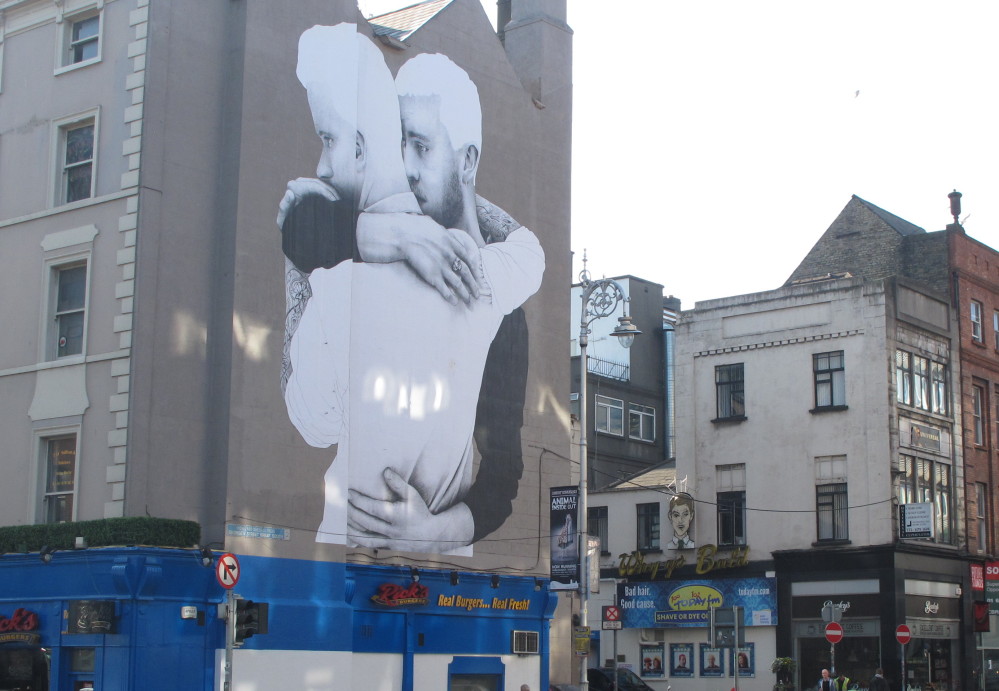DUBLIN — Gays in Ireland often have faced a stark choice between leading secret lives or emigrating to more liberal lands. This week, the Irish could turn that tradition on its head and vote to legalize same-sex marriage in the world’s first national referendum on the matter.
The campaign ahead of Friday’s constitutional referendum has featured searing testimonies designed to make the voters of this predominantly Roman Catholic nation look in the mirror. Members of many of Ireland’s most prominent families have come out of the closet in hopes of challenging their neighbors’ attitudes to homosexuality. The contest has pit the waning power of the Catholic Church against the secular-minded government of Prime Minister Enda Kenny.
“A yes vote costs the rest of us nothing. A no vote costs our gay children everything,” former President Mary McAleese said at a gay rights event in Dublin this week after her only son, a 30-year-old airline executive, revealed he is gay. McAleese, a canon law scholar and former legal adviser to the church, spoke of her son’s experience of bullying and isolation as a teenager, and of friends who learned that their own sons were gay only when they attempted suicide.
The government’s campaign effectively began in January with a 36-year-old Cabinet minister, Leo Varadkar, declaring his homosexuality so that he could campaign for a “yes” vote from a position of honesty.
The public confessional has been busy ever since. A steady stream of entertainers, sports stars and political and business leaders have told their stories of coming out to parents and siblings, or of learning that a friend or relative was gay. Most say they kept their sexual identity secret to avoid ostracism or even criminal sanction in a country that, until 1993, outlawed homosexual acts.
“For too long now, people haven’t been able to be true to themselves,” said Conor Cusack, who is one of the few openly gay athletes in Ireland. Cusack has challenged the views of other athletes who say they’ll vote no.
Gay marriage is legal in 19 countries, including Britain and most of the United States. Three U.S. states used referendums to help enact their laws, but Ireland is the first to hold a nationwide popular vote.
While opinion polls have consistently shown that most voters support the change, the “yes” side’s lead has narrowed this month as religiously conservative campaigners raise fears that gay marriage could endanger children.
Send questions/comments to the editors.



Success. Please wait for the page to reload. If the page does not reload within 5 seconds, please refresh the page.
Enter your email and password to access comments.
Hi, to comment on stories you must . This profile is in addition to your subscription and website login.
Already have a commenting profile? .
Invalid username/password.
Please check your email to confirm and complete your registration.
Only subscribers are eligible to post comments. Please subscribe or login first for digital access. Here’s why.
Use the form below to reset your password. When you've submitted your account email, we will send an email with a reset code.